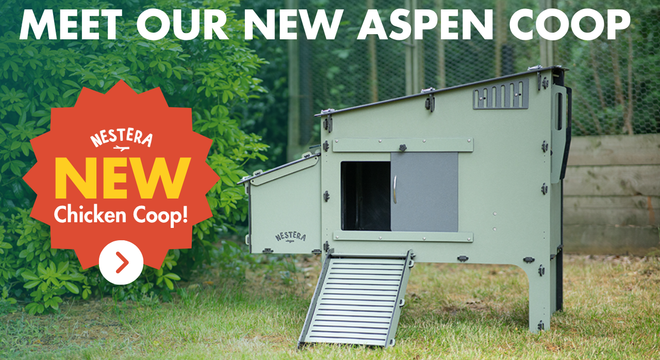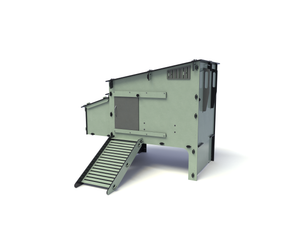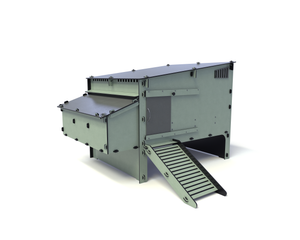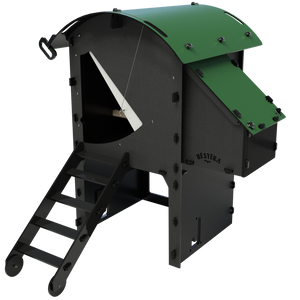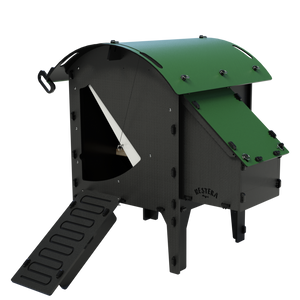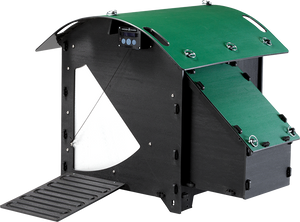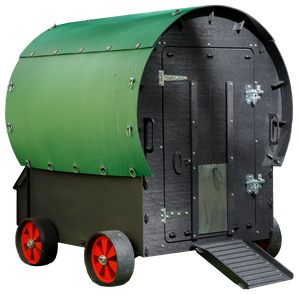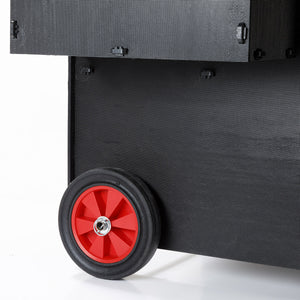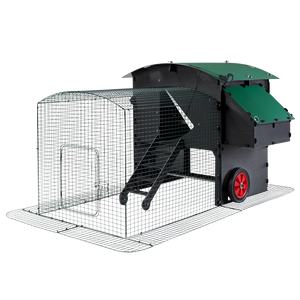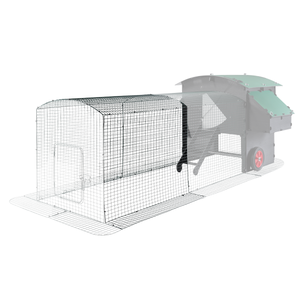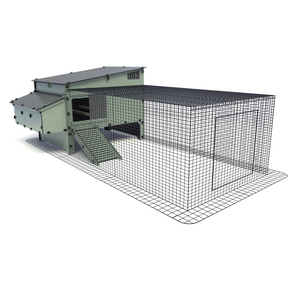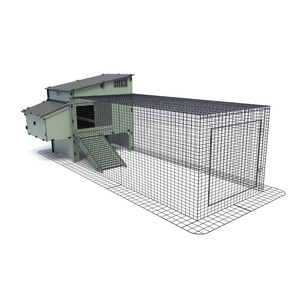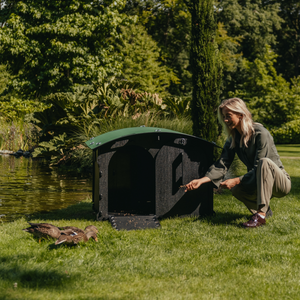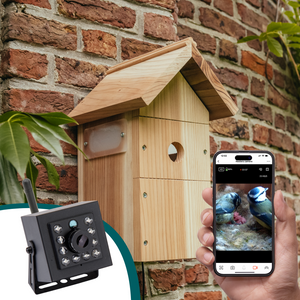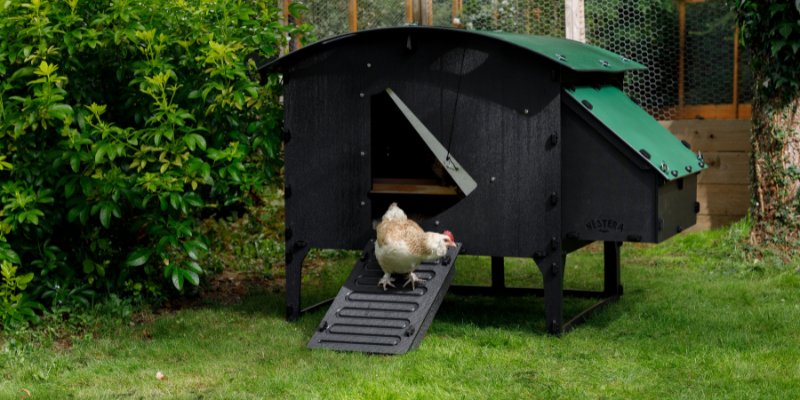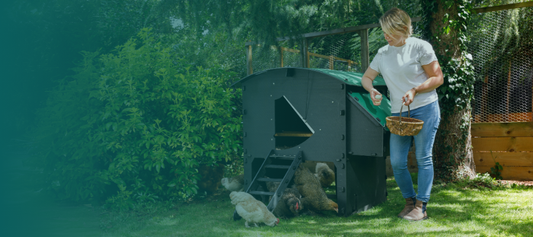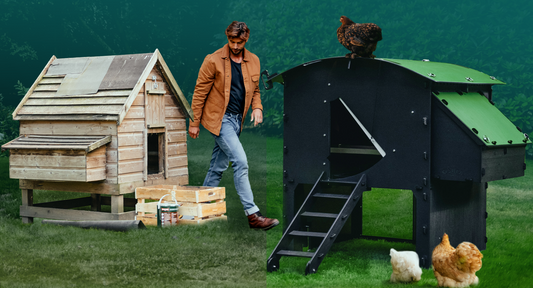Why aren’t my chickens leaving the chicken coop?
This might seem an odd question but if you’ve recently acquired new chickens, it is surprisingly common! When you get chickens for the first time or add birds to your flock, they can feel extremely overwhelmed. You know that you have provided a safe and pleasant environment for them, but they don’t!
Try to imagine how a chicken may perceive the situation they are in. They are in an unfamiliar coop, in a strange place, with people they’ve never met and possibly other chickens who may be hostile. Everything they can see, hear and feel is suddenly different. It’s no wonder they want to stay in their coop!
Now imagine that these new chickens have spent their whole lives in a barn. The outdoors will look very bright compared to what they have been used to. Thousands of other birds may have surrounded them, providing a certain safety in numbers.
It may be raining, snowing or windy in your garden. These are all conditions that these chickens have never experienced and leave them feeling confused and frightened.
Always try to remember that all forms of poultry are prey animals. That means other animals hunt or kill them for food. You may ask, how do they know they are prey and not predator? We’re pretty sure they won’t be finding out from a nature documentary but instead from millions of years of evolution.
Once chickens become accustomed to the outdoors, they will want to be outside as much as possible.
What you’re experiencing with these birds is normal, it’s not your fault and there is plenty you can do to help them.
What can I do to encourage my backyard chickens to come out of the coop?
We all want our chickens to come outside to eat, drink and explore. Although they may feel nervous to begin with, there is lots you can do to make them feel more comfortable.
If you have barking dogs, noisy children or nosey cats, you might need to try and limit their access to the hens for a few days.
Farm workers always remain quiet in the sheds and avoid sudden movements that can startle the birds, even though chickens are accustomed to humans.
Most children of course are the complete opposite! They are full of energy and regularly run, jump, skip and shout. It might be a good idea to inform everyone at home that the chickens require some time to adapt to their new surroundings. Therefore, it is important for everyone to be gentle and quiet near the coop for the next few days.

Given that hens are prey animals, the presence of a dog can be terrifying! Dogs love exploring new things in the garden and will eagerly sniff around the coop and run. That's why we recommend that you follow these steps to introduce your dog to the flock.
Sadly, a large number of domestic chickens are killed by the family dog, a neighbour’s dog or a visiting one. Dogs are natural predators and even the most placid canine can have their prey drive ignited by a flapping hen. Always be very careful with dogs near your poultry and never leave them unattended.
Many people worry about their chickens with cats. If the birds are of a good size and the cat is domesticated, it is much more likely that the chickens will assert themselves against the cat, than the other way around. If the cat is wild then you should exercise the same caution you would use with any similarly sized feral animal.
The quieter and more contained you can make their outside space, the better. This is just temporary until they gain confidence and realise the benefits of life outside the coop.
Putting up some kind of screening which would be a sheet, blanket or tarpaulin to make a run feel more contained will help. If you are planning on completely free-ranging your flock, you might want to devise a small temporary run for a few days to support their transition. Preventing other pets from seeing into the run can really help chickens find their feet.
If you already have other birds, it’s useful to keep these separate while they settle in. Existing birds often behave aggressively towards newcomers while establishing the pecking order.They will often try to assert themselves by denying access to food and water. This may weaken newer birds and make them prone to illnesses.
Always try to separate new birds for a minimum of 14 days. This is to ensure that any harmful parasites or diseases they may carry can be checked for. These parasites or diseases have the potential to harm your existing flock. Our runs are perfectly made for that!
If your birds are still reluctant to leave the coop by noon, gently lift them out and place them near their food and water. Never add food or water into the coop as not only will it become soiled but it can encourage vermin into their housing.
Overwhelmed chickens can be a bit like overwhelmed teenagers. If you feed them in their rooms, they might decide they’re never coming out and we know both groups would really benefit from a bit of fresh air and spreading their wings!
